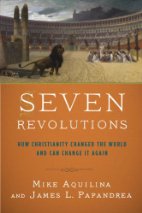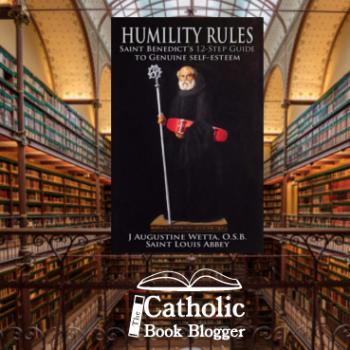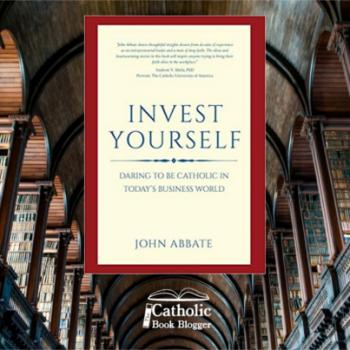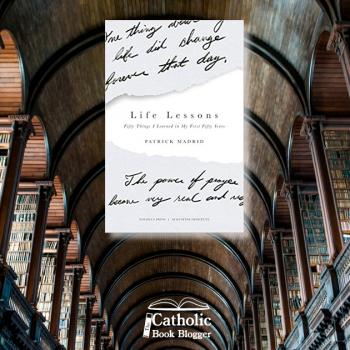 Today’s culture may seem headed into a downward spiral. We live in an over-sexualized society with little to no regard for religion. One that tries to convince us that our wants and needs are more important than our neighbors. However we must understand our past to have hope for the future. In their new book Seven Revolutions: How Christianity Changed the World and Can Change It Again, authors Mike Aquilina and James Papandrea reveal history to us. Armed with the knowledge that Christianity has changed the world for the better many times before, we can be confident that we can do it again.
Today’s culture may seem headed into a downward spiral. We live in an over-sexualized society with little to no regard for religion. One that tries to convince us that our wants and needs are more important than our neighbors. However we must understand our past to have hope for the future. In their new book Seven Revolutions: How Christianity Changed the World and Can Change It Again, authors Mike Aquilina and James Papandrea reveal history to us. Armed with the knowledge that Christianity has changed the world for the better many times before, we can be confident that we can do it again.
By focusing on the example of the early church, the book shows that we have indeed been here before. In the early centuries of Christianity the Roman Empire attempted to stifle Christians. “Nevertheless, by the fourth century, the Christian Church have overcome paganism, with its devaluation of human life and dignity, and converted an empire. As it did so, the Church gave the world seven gifts that forever changed human culture. These gifts were the seven cultural revolutions that have outlived both the persecuting empire, and in the end, they have shaped Western society as we know it, and for the better.”
Those seven revolutions as outlined in chapters devoted to each are:
A Revolution of the Person: The Invention of Human Dignity – Christians cared for the poor and the weak in a manner never before seen in the Roman Empire. “A helpless child is a person. A blind widow is a person. A crippled slave is a person. This awareness was a revolutionary change that Christianity brought to the world, and all the other revolutions depend on this one.
A Revolution in the Home: The New Idea of Family – Christianity really took a stance when it came to the family. Historically in the Roman Empire wives and children were treated as little more than property. “They had left behind the loveless world it holy, and no one Can force even the humblest laborer – even a slave – to do work or that day love their children and are equal partners in raising them. Imagine how this picture would have shocked a well- bred Pagan Roman.
A Revolution of Work: How Labor Became Holy – In the Roman Empire work was reserved for the lower-class slaves. Upper-class gentlemen wouldn’t think of working with their hands. Christian labor was elevated to the same level as God’s labor . “We are meant to rest o the seventh day because God rested from creation on the seventh day. He blessed that day and made it holy, and no one Can force even the humblest laborer – even a slave – to do wok on that day. That’s the law.”
A Revolution of Religion: God Is Love – This is one of the book’s longest chapters and for good reason. The Church led the Roman culture from one that paid homage to multiple gods to one that believed in and worshipped one true God. A God that loved His people to the point of sacrificing himself for them. “ln other words, the Christian religion acknowledges God’s offer of love. God invites every individual into relationship with himself, a relationship that embraces the whole person – body, soul, and personality – and a relationship that never ends, because God’s love never ends .”
A Revolution of Community: Love Your Neighbor – The Church was the first to recognize the plight of the poor. In the Roman Empire the poor were largely ignored at best they were slaves. Food pantries, soup kitchens, homeless shelters, orphanages, and hospitals all were a result of this new charity to the poor practiced by the Church.“By rejecting the separation of the haves and have-nots, the Church rejected the divisiveness of class distinctions and class envy and promoted a unity that transcended social status and economic differences. The message to the wealthy was: Do not congratulate Yourself for your accomplishments- much less for your accumulations – but rather give thanks to God by giving of your surplus to those who have less.”
Revolution in Death: the Conquest of the Last Enemy – The early Christians respected the bodies of their dead whereas Roman pagans considered the mere sight of a corpse something that made them unclean. “Wherever the Church spread, Christians took up the practice of burying their dead. The first major building projects of the new faith in Rome werenot churches – one never knew When th, next persecution might break out, and the building would be knocked to the ground. The first visible Christian structures were the catacombs.”
A Revolution of the State: Religious Freedom – Many believe this deals with separation of Church and State but it has far more important implications than that. The early Christians took a stand against the persecutions they faced during the early centuries of the Church. “Thus, religious freedom is about more than the freedom to worship according to one’s conscience – it is also about freedom from persecution, oppression, and exploitation by one’s own government. It is freedom from a class system that some are born to rule and others are born only to be ruled over. And religious freedom is freedom from fear- a freedom that can only come from living in a society in which leaders are considered stewards of their people and resources.”
I found each of the chapters to be highly informative and eye-opening to what the Church was able to accomplish under the extreme persecution of the Roman empire. There is no doubting that our society is in some ways returning to the days of Christian persecution. Perhaps not to the point of death in our own country but at minimum the belief in God is mocked and belittled. So what can we do about this? How can we stand up to a predominantly selfich culture? After learning about these seven revolutions Mike and Jim present two chapters that are perhaps the most timely chapters I have read in a while.
“With this book we are calling all self-proclaimed Christians – even those on the proverbial fence. We are calling them back to the core values of the faith, and to the practice of historic Christian values.” After issuing that “battlecry”, Mike and Jim give readers a list of suggestions in chapter ten A Christians To-do-list for the Twenty-First Century. So what are these items? Reject Isolationism; Respect the Value of Every Human Life; Reject the Culture of Celebrity and Humiliation as Entertainment; Respect the Humble, the Laborer, and the Poor; Reject the Creation of a Secular Religion of the State; Respect Religious Freedom; Reject a Defeatest Attitude; Respect Your Neighbors.
This is a timely book and one that I encourage you to take up and read. By using the example of the early Christians, authors Mike Aquilina and Jim Papendrea lay out an action plan for our society today. As you progress through each of the seven Revolutions mentioned in this book you suddenly realize how familiar they sound. Many of the moral and ethical issues prelevant in ancient Rome are in some ways prevalent in today’s society. The lesson from this book is obvious. If we wish to stop the downward spiral of culture it begins with us…..all we have to do is start today.
__________________________________________________________________________________________











